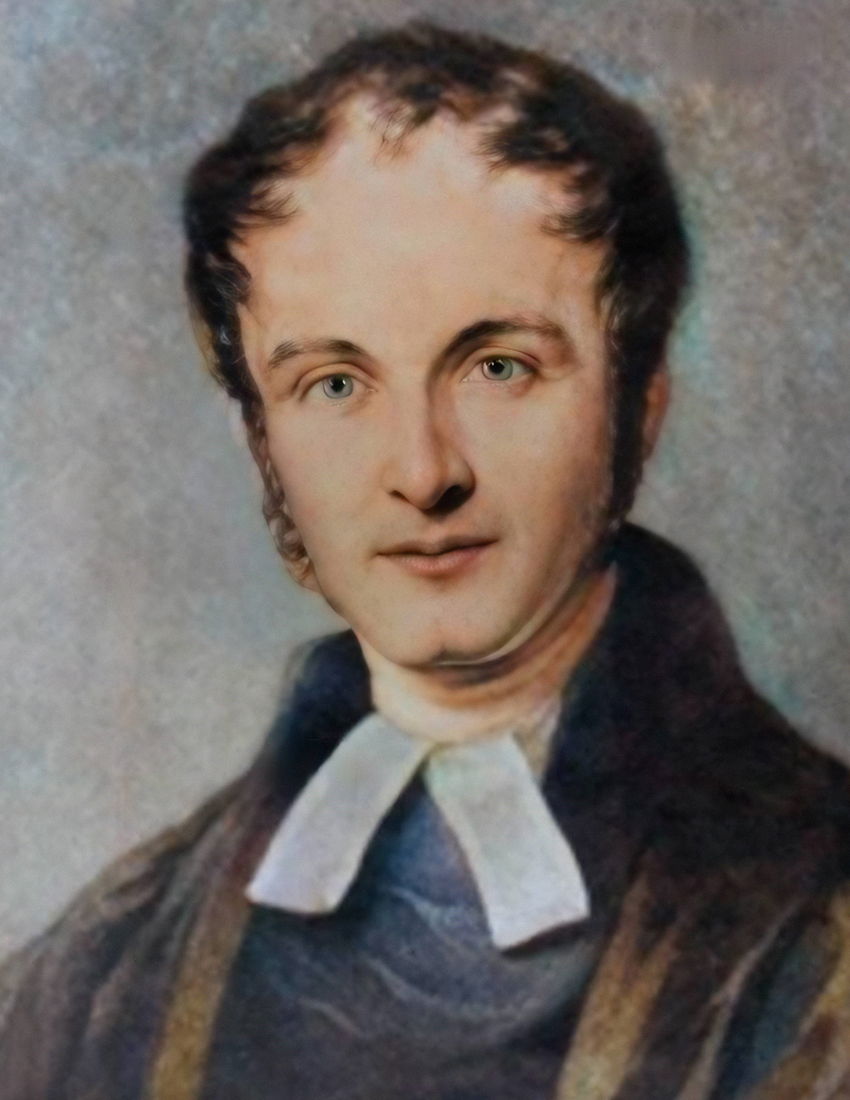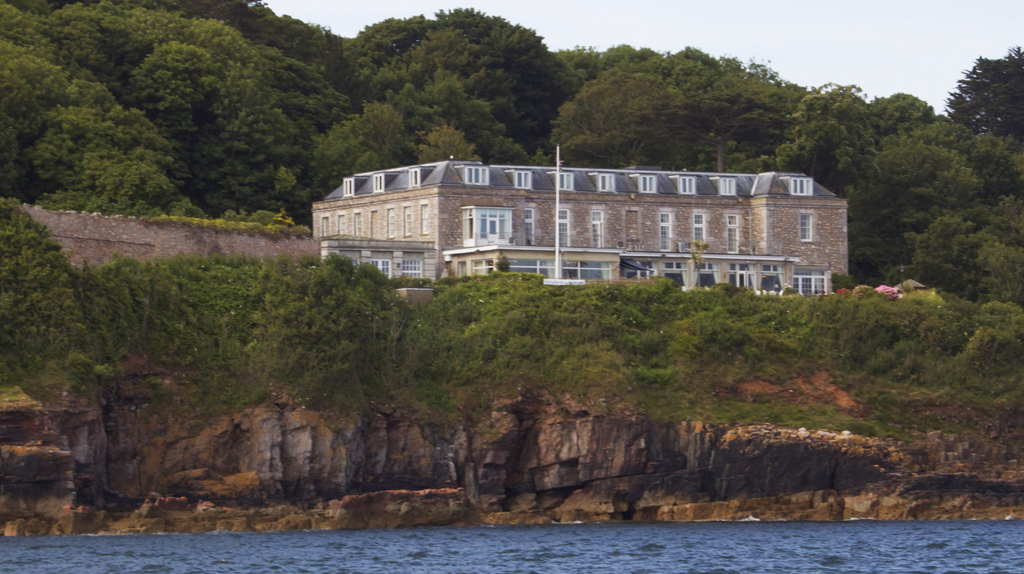Born: June 1, 1793, Ednam, Scotland.
Died: November 20, 1847, Nice, France.
Buried: Sainte Marguerite Cemetery, Nice, France.
Henry Francis Lyte

Hymns by Henry Francis Lyte
From Kelso to Enniskillen: The Early Years of Henry Francis Lyte
Henry Francis Lyte was born on June 1, 1793, in the picturesque village of Ednam, near Kelso, Scotland. His father, Thomas Lyte, was a captain in the army, but he was more interested in the pleasures of fishing and shooting than in the responsibilities of family life. When Henry was just a young boy, his father deserted the family, leaving his wife Anna Maria to care for their children alone.
Tragedy struck when Anna Maria and her youngest son died shortly after moving to London. Henry and his older brother were left to fend for themselves, but a glimmer of hope emerged when they were sent to Portora Royal School in Enniskillen, County Fermanagh, in Ulster. It was there that Henry’s intellectual gifts were recognized and nurtured by the headmaster, Robert Burrowes, who took the young boy under his wing and treated him like an adopted son.
The Call to Ministry and Early Career
After his studies at Trinity College, Dublin, where he won prizes for his poetry, Lyte felt a call to the Anglican ministry. With little formal training, he took holy orders in 1815 and began his pastoral work as a curate in Taghmon, near Wexford, Ireland. It was during this time that Lyte experienced a profound spiritual awakening, coming to understand the teachings of St. Paul in a new light and dedicating himself to preaching the Gospel with renewed fervor.
In 1817, Lyte moved to Marazion, Cornwall, where he met and married Anne Maxwell, the daughter of a prominent Scottish-Irish family. Anne proved to be a devoted wife and a skilled manager of the household, bringing a measure of stability and comfort to Lyte’s life. Together, they raised five children, though they also knew the heartache of losing a month-old daughter during their time in Sway, Hampshire.
The Fishermen’s Friend: Ministry in Brixham
It was in the fishing village of Lower Brixham, Devon, that Lyte found his true calling. Arriving there in 1824, he threw himself into the life of the community, establishing schools for children and seamen, expanding the church to accommodate the growing congregation, and ministering to the spiritual and practical needs of the fishermen and their families.
Lyte’s concern for his flock was genuine and deep. He visited them in their homes and on their boats, provided Bibles for every vessel, and compiled a collection of hymns and prayers for use at sea. His ability to connect with people from all walks of life, combined with his scholarly pursuits and poetic gifts, made him a beloved figure in Brixham and beyond.
A Man of Many Talents and Charms
Lyte was a man whose presence and personality left an indelible mark on those who knew him. Standing tall and blessed with an “unusually handsome” countenance, Lyte possessed a slightly eccentric air that only added to his great personal charm. He was renowned for his quick wit, deep human understanding, and a natural poetic sensibility that informed both his life and his work.
A true Renaissance man, Lyte’s talents extended far beyond the realm of ministry and poetry. He was an accomplished flute player, and according to his great-grandson, he was never without his beloved instrument. The image of Lyte, tall and dignified, with his flute always at the ready, paints a picture of a man who found joy and solace in music, and who was always prepared to share his gift with others.
Lyte’s intellect was as impressive as his artistic abilities. He was fluent in Latin, Greek, and French, and he delighted in engaging in discussions about literature with friends and colleagues. His love of learning also extended to the natural world, and he was known for his knowledge of wild flowers – a passion that surely informed his poetic vision of the beauty and fragility of life.
Berry Head House: A Mystery and a Legacy
The story of how Henry Francis Lyte came to reside at Berry Head House, a former military hospital built in 1809 to support the Napoleonic war forts on Berry Head, is shrouded in mystery. Legend has it that King William III was so impressed with the arrangements made by Reverend Lyte and his work in the area that he gifted the estate to the vicar. However, no definitive historical source has been found to confirm this tale.
Adding to the intrigue is the fact that Lyte’s annual stipend as a minister was a modest £140, making it unlikely that he could have purchased such a large property outright. Yet, despite the lack of clear evidence regarding how he acquired Berry Head House, it is certain that Lyte called it home for the last 23 years of his life while serving as the minister in Brixham.
During his time at Berry Head, Lyte transformed the former hospital into a beautiful country house, pouring his heart and soul into creating a sanctuary for his family and his work. He built a magnificent library that was described in his obituary as “one of the most extensive and valuable in the West of England.” The library was so impressive that, upon Lyte’s death, it took an astonishing 17 days of auctions to sell off its contents.
It was also at Berry Head House that Lyte penned some of his most famous hymns, including “Abide with Me,” which he is said to have written in the grounds of the estate just before his death in September 1847. The house and its surroundings undoubtedly provided inspiration and solace for the poet and hymnist during his final years.
After Lyte’s passing, Berry Head House remained in his family’s possession until 1949, when it was converted into the Berry Head Hotel. Though the exact details of how Lyte came to own the property may never be known, the legacy of his time there endures.
The Trials of Health and Faith
On November 20, 1847, at the age of 54, Henry Francis Lyte passed away in Nice, France, where he had gone in search of healing for his failing body. Just weeks before his death, Lyte penned the words to his most famous hymn, “Abide with Me,” as he prepared to leave Brixham for the last time.
According to his daughter, Anna Maria Maxwell Hogg, Lyte had been determined to preach one final sermon to his beloved congregation, despite his weakened state. “It was better,” he often playfully remarked when in better health, “to wear out than to rust out.” That Sunday, he delivered a poignant message on the Holy Communion, urging his flock to find strength in Christ.
In the evening of that same day, Lyte retired to his study and emerged with the manuscript of “Abide with Me,” which he handed to a relative, along with his own tune for the hymn. It was a fitting valedictory for a life spent in service to God and others, a plea for the Lord’s presence in the face of life’s trials and the approach of death.
Lyte’s last words were “Peace! Joy!” – a testament to the hope and trust in God that had sustained him throughout his life.
Lyte’s legacy lives on, not only in the enduring popularity of his hymns but in the example of his life – a life devoted to serving God and others, no matter the cost. His words continue to resonate with believers across denominations and cultures, offering comfort in sorrow, hope in despair, and the assurance of God’s abiding presence.
As we sing “Abide with Me,” “Praise, My Soul, the King of Heaven,” or any of Lyte’s other timeless hymns, we join our voices with the countless multitudes who have found solace, joy, and inspiration in his words. We are reminded that even in the darkest of times, God’s love and faithfulness remain constant, and that through Christ, we have the promise of eternal life and peace.
May the story of Henry Francis Lyte encourage us to trust in the Lord, to use our gifts for His glory, and to leave a legacy of faith that will endure long after we have gone to our eternal rest.
Swift to its close ebbs out life’s little day;
Earth’s joys grow dim, its glories pass away;
Change and decay in all around I see;
O Thou who changest not, abide with me.


